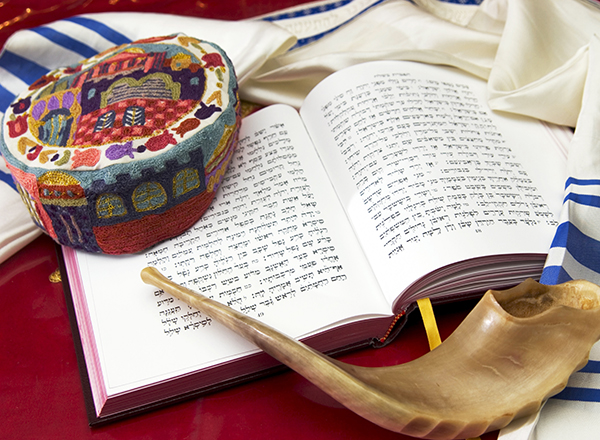Rosh Hashanah and Yom Kippur: the High Holy Days of the Jewish year

This message is one of many related to our diverse community’s numerous unique holidays, including cultural, historic, and religious observances throughout the year. I am likely to write about the holidays or cultural observances that mean the most to you as they occur throughout the year. Please let me know if you want to learn my plans about a holiday that is specifically important to you.
Together, the holidays of Rosh Hashanah and Yom Kippur are the High Holy Days of the Jewish year. Both take place in the coming days.
Rosh Hashanah
Rosh Hashanah, which means “the head of the year,” is the Jewish New Year. The biblical name for this holiday is Yom Teruah. It is the traditional anniversary of the creation of the world and the creation of Adam and Eve, who are known as the biblical first man and first woman. Rosh Hashanah is also a judgment day, when Jews believe that their God considers people’s deeds from the previous year, decides what the next year will be like for them, and inscribes the results in the Book of Life for the coming year.
When is Rosh Hashanah?
Rosh Hashanah is a two-day celebration that begins on the first day of Tishrei, the seventh month of the Jewish ecclesiastical year. In 2020, the holiday begins at sunset on Friday, September 18, and ends at sunset on Sunday, September 20. While I am not Jewish, I am happy to note that my birthday lands right in the middle of these very important days for my Jewish friends this year.
I wrote in detail about this holiday last year. I encourage you to read it.
Rosh Hashanah marks the beginning of the 10 “Days of Awe,” which conclude with Yom Kippur.
Yom Kippur
Yom Kippur, the Day of Atonement, is the holiest day of the Jewish year. It concludes the 10 Days of Awe. The day is devoted to repentance for sins that were committed during the previous year.
In 2020, Yom Kippur begins on the evening of Sunday, September 27, and ends on the evening of Monday, September 28.
At the conclusion of Yom Kippur, there is a joyous celebration and a breaking of the fast.
Many more details about this holiday are included in my message from last year.
This year, communal observances of Rosh Hashanah and Yom Kippur will be different from other years. The full communal celebrations will be less common and will take place with smaller groups exercising safe practices during the pandemic. For all who celebrate, the rituals of setting aside work, repentance, and purification will bring spiritual and historic meaning as they always do.
To those celebrating Rosh Hashanah and Yom Kippur:
Shanah Tovah! (“A good year!”)
Yom Tov! (“Have a good holy day!”)
Russ Kavalhuna
President